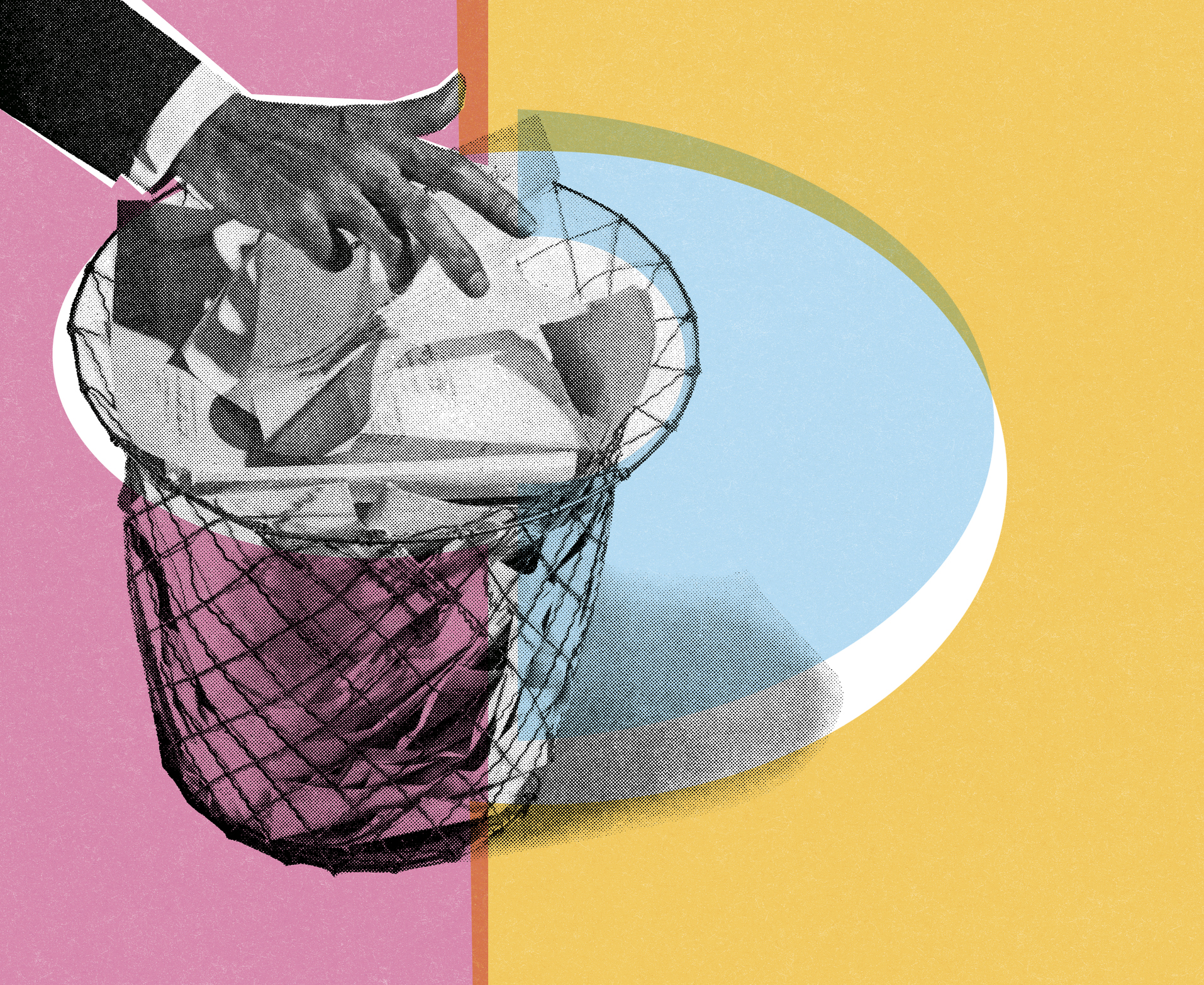Written by Amy Beecham
We love to celebrate the success of the people around us, but can sharing our wins ever go too far?
Everyone knows a bragger. Whether it’s a colleague who shares every single bit of praise they receive or an old friend who can’t help but regale you about how #blessed they are, when people want us to know how much they’re winning, it feels like we can’t escape it.
And while we want to be their cheerleaders and support their upwards journey, it isn’t always easy, particularly when it feels like our own lives are heading in the opposite direction.
When someone falls into a habit of oversharing the negative without balancing it with the positives – and with disregard to the other party’s limits or boundaries – psychologists call it trauma dumping.
“It’s when someone unexpectedly off-loads their traumatic thoughts, feelings, energy and experiences onto someone else,” clinical hypnotherapist and certified life coach Marie Fraser previously told Stylist.
But what about the opposite? What is it called when a loved one refuses to acknowledge that anything ever goes wrong in their lives, and can’t stop themselves from overwhelming you with all the good?
While there’s no official diagnosis, it’s something I’ve termed ‘success dumping’ – and it’s something I guarantee we’ve all been on the receiving end of.
Why do we success dump?
It’s no secret that comparison culture has us in a chokehold, both online and IRL. Stylist’s own research found that 44% of our readers can’t help but compare when we see others having amazing experiences; for others it’s career success (40%) or benchmarking where they’re at in their life compared to their peers (38%) that makes them feel inferior.
Unsurprisingly, 58% of women also said that social media has changed how others view them and how they view others. So when we start to feel bombarded by someone else’s good news (particularly when there’s no respite from it) it can start to feel overwhelming.
“Envy can be quite subtle at times, and we don’t always realise that’s what we’re feeling,” Mariel Witmond-Bateman, a mindset coach, tells Stylist. “It can become hidden in resentment or criticism or sabotage as we try to wrestle with what it really is that we’re experiencing.”
While jealousy has typically been seen as an ‘ugly’ emotion that many of us would rather not admit to feeling, it’s a common response to feelings of inadequacy or competition when we’ve been conditioned to feel like ‘success’ is a scarcity.
“Naturally, throughout our lives, we’re going to be at different stages, but when you feel like you’re not doing well enough, especially in a social media-heavy world, it can feel like everyone is doing better and doing more than you,” Witmond-Bateman continues.
But surely celebrating the people in our lives, regardless of our own situations, is just a basic tenet of friendship? And isn’t it wrong to be envious of those closest to us?
“We tend to think of things in binaries, so either we’re a good friend and happy for our loved ones all the time or we’re unhappy or jealous and the worst friend ever,” explains counselling psychologist Dr Rina Bajaj. “But there’s a lot more complexity to it than that.”
“If someone is constantly talking about their achievements and it’s making you feel worse about yourself, it doesn’t make you a bad friend to step away,” she says. “Being a ‘good’ friend does always mean you’re there or have to listen, sometimes it can be about having and respecting boundaries with one another.”
Boundaries in friendships are always difficult to navigate. We’re taught that in order to fully show up for the people in our lives, we have to be there for them 100%, which isn’t always possible when we’re dealing with our own struggles and insecurities.
I’m all too familiar with the sinking feeling of hearing someone talk about their achievements, followed by the immediate crush of guilt for downplaying or disregarding the success of someone I love.
But here’s the thing: as much as we’ve been victims of success dumping, it’s likely we’ve done it ourselves too.
According to Witmond-Bateman, we brag because we seek a kind of external validation we can’t fulfil internally.“We can find ourselves becoming competitive when there’s a deeper feeling of insecurity or inadequacy that we’re trying to mask or gloss over,” she explains.
It’s a complex situation, particularly as we know that women are far less likely than men to talk about their achievements. In that sense, should we not be celebrating the power of sharing victories?
For Witmond-Bateman, it’s the lack of balance between the highs and the lows that she takes issue with.
“Friendships that are encouraging and supporting require authenticity on all parts,” she suggests. “It requires you to be honest and genuine about the good parts and the bad.”
Dr Bajaj also calls protecting ourselves while supporting others a “fine balance” we have to navigate. “To truly support someone, you need to feel full as well,” she suggests. “But when we pull back a bit and take time for ourselves, that’s when the ‘musts’, ‘shoulds’ and guilt comes in.”
How to deal with success dumping
When that first whisper of “I wish that was me” begins, Dr Bajaj advises taking a moment to check in with yourself.
“When you get into that situation, it’s important to think about why conversations around someone else’s success is a trigger for you,” she states. “Is it a sense of not being good enough? Is it to do with negative thoughts around what you think you are or are capable of?”
“We have to be able to understand our own processes before we can take action, and take personal responsibility for shifting our responses as well.”
If you’re struggling with how to communicate your feelings to a friend, Witmond-Bateman says that noticing the feeling and having the confidence to address it is key. “Try expressing something like: ‘I’m so proud of you and I’m so happy that these great things are happening, but I have to be honest that right now I’m not in a great place and hearing that is difficult for me. Do you think we could focus on something else?’”
“Hopefully that person is a good friend and understands, but if they’re not and you start to realise that you’re just a vessel for their bragging, it might be time to think about distancing yourself.”
“It’s not at all an easy conversation to have, but the confidence only comes with practice. Setting those boundaries will feel hard at first, but will ultimately mean you can still engage in your relationships without feeling constantly depleted by them.”
Images: Getty
Source: Read Full Article

